In this edition of Sliced, the 3D Printing Industry news digest, we cover the latest business developments, partnerships, and acquisitions in the additive manufacturing sector.
Today’s edition features the latest 3D printing partnerships, business updates, material developments, and a 3D printing design competition.
Read on for the most recent updates from ExOne, Sintratec, Digital Manufacturing Centre (DMC), CADS Additive, PostProcess Technologies, Freemelt, Axial3D, Rapid Shape, and more.
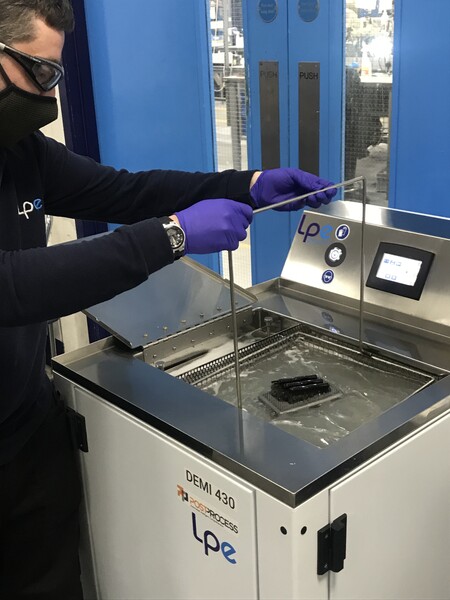
New 3D printing partnerships from PostProcess, Meltio, Nexa3D, Hexagon, Freemelt, Axial3D
Kicking off this week’s partnerships news is automated post-processing system manufacturer PostProcess, which has teamed up with Laser Prototypes Europe (LPE) to implement automated post-printing for the company’s large customer base across the UK and Ireland. LPE has installed PostProcess’ DEMI 430 resin removal system.
“Staying ahead of the curve is what’s enabled us to deliver quality prototypes and products to our customers for the last 30 years,” said Tom Walls, Managing Director of LPE. “We look forward to streamlining our processes even further with automated post-printing in the DEMI 430, a solution we can trust to intelligently handle our wide array of print technologies and resins.”
Elsewhere, 3D printer manufacturer Meltio has signed a strategic partnership with India’s largest CNC manufacturer Bharat Fritz Werner (BFW) as an official value-added partner. BFW will be responsible for integrating Meltio’s technology into its machines for the Indian manufacturing sector, while simultaneously widening its own product portfolio and application range.
High-speed resin 3D printer manufacturer Nexa3D, meanwhile, has entered into a reseller partnership with 3D DDS to enable dental professionals greater access to Nexa3D’s portfolio of ultrafast polymer 3D printers.
The partnership will combine Nexa3D’s ultrafast LSPc 3D printing technology with 3D DDS’ training, personalized technical support, backup print services and custom workflow management integration tools.
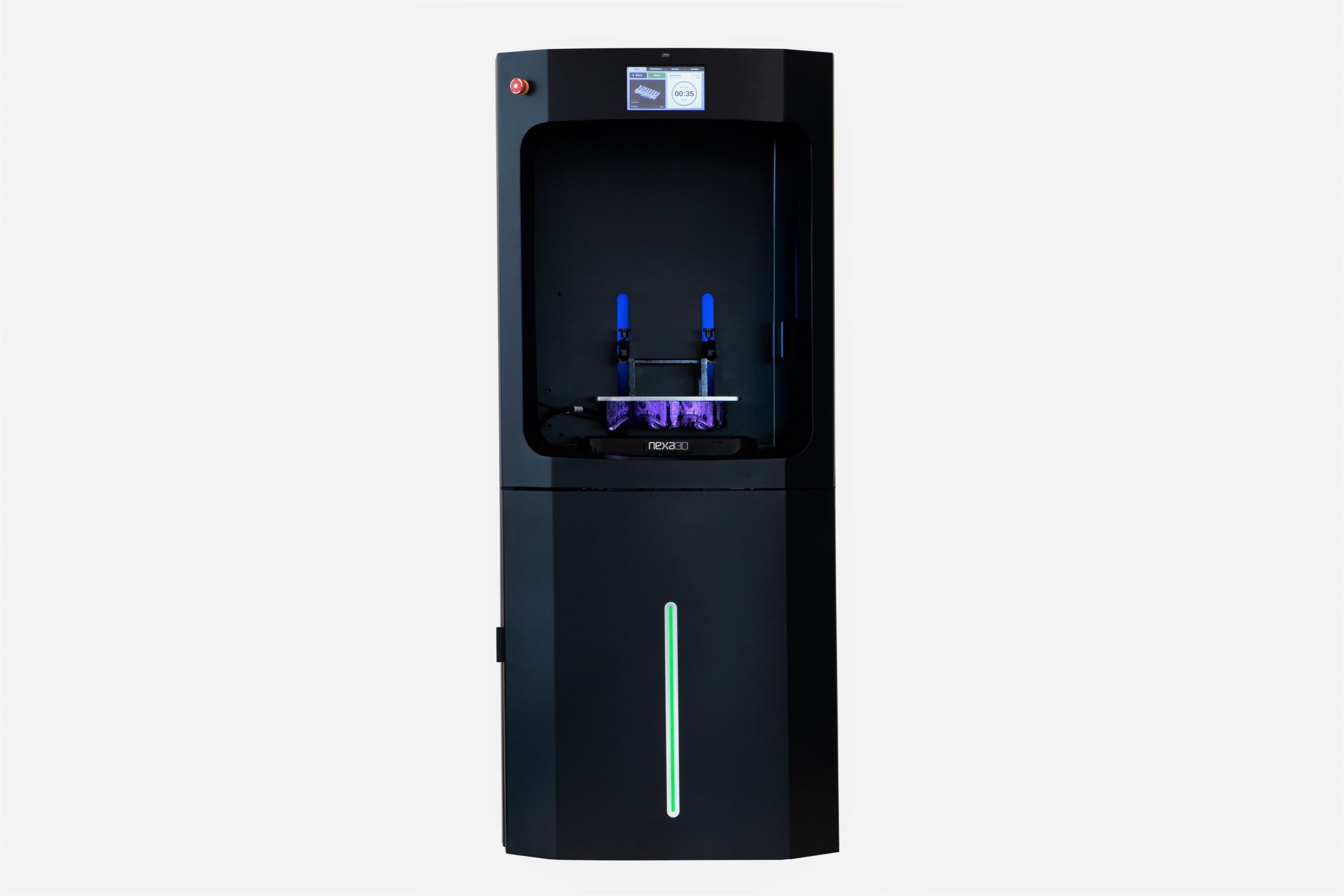
The Manufacturing Intelligence division of Sweden-based global technology firm Hexagon has partnered with 3D printing software company CADS Additive in order to exchange technologies to progress design for additive manufacturing (DfAM).
The agreement will see Hexagon integrate CADS Additive’s material-saving support structure generation technology into its Simufact Additive software. Meanwhile, CADS Additive will also integrate Hexagon’s build simulation capabilities into its AM-Studio software.
“This collaboration is a win for all the industry,” said Daniel Stadlmayr, Technical Director of CADS Additive. “We are pleased that Hexagon has chosen to implement our additive support technology in Simufact Additive. Having such accurate build simulation really helps manufacturers to get the best quality results from their printer and reduce failure, and we are pleased that we can offer our AM-Studio customers greater confidence before they commit to print.”
This week has also seen Swedish metal 3D printer manufacturer Freemelt team up with industrial, engineering, and technical solutions specialist Etteplan to jointly develop Freemelt’s upcoming industrial 3D printer. Through their agreement, the companies are seeking to deliver 3D printing capacity to manufacturing companies worldwide and accelerate the transition to more sustainable products and production.
“Etteplan has identified AM as one of the most important technologies for the future and we are committed to continue building our capabilities in AM,” said Riku Riikonen, Senior Vice President, Engineering Solutions, Etteplan. “A close partnership with Freemelt opens up possibilities to deepen the knowledge in the area and creates synergies with the potential to substantially increase the value offered to the market and to our common customers over time.”
Rounding off this week’s partnership news is medical technology firm Axial3D and anatomical model manufacturer BIOMODEX. The two companies have come together to enable BIOMODEX to accelerate the production of 3D printed brain aneurysm models by reducing the time it takes to transform 2D medical images into 3D visuals. BIOMODEX will leverage Axial3D’s AI-powered Segmentation-as-a-ServiceTM platform to automatically transform 2D medical images to 3D visuals in minutes, allowing the former’s 3D printed models of brain arteries to be fabricated and distributed to its international customer base within days.
“We are incredibly excited to be announcing this partnership with BIOMODEX,” said Roger Johnston, CEO of Axial3D. “Their market offerings are truly groundbreaking for the physicians and patients who benefit from them, and for Axial3D to be further able to fuel their global scaling and in parallel, transform the speed of delivery, providing a higher standard of care to aneurysm patients globally, is inspiring.”
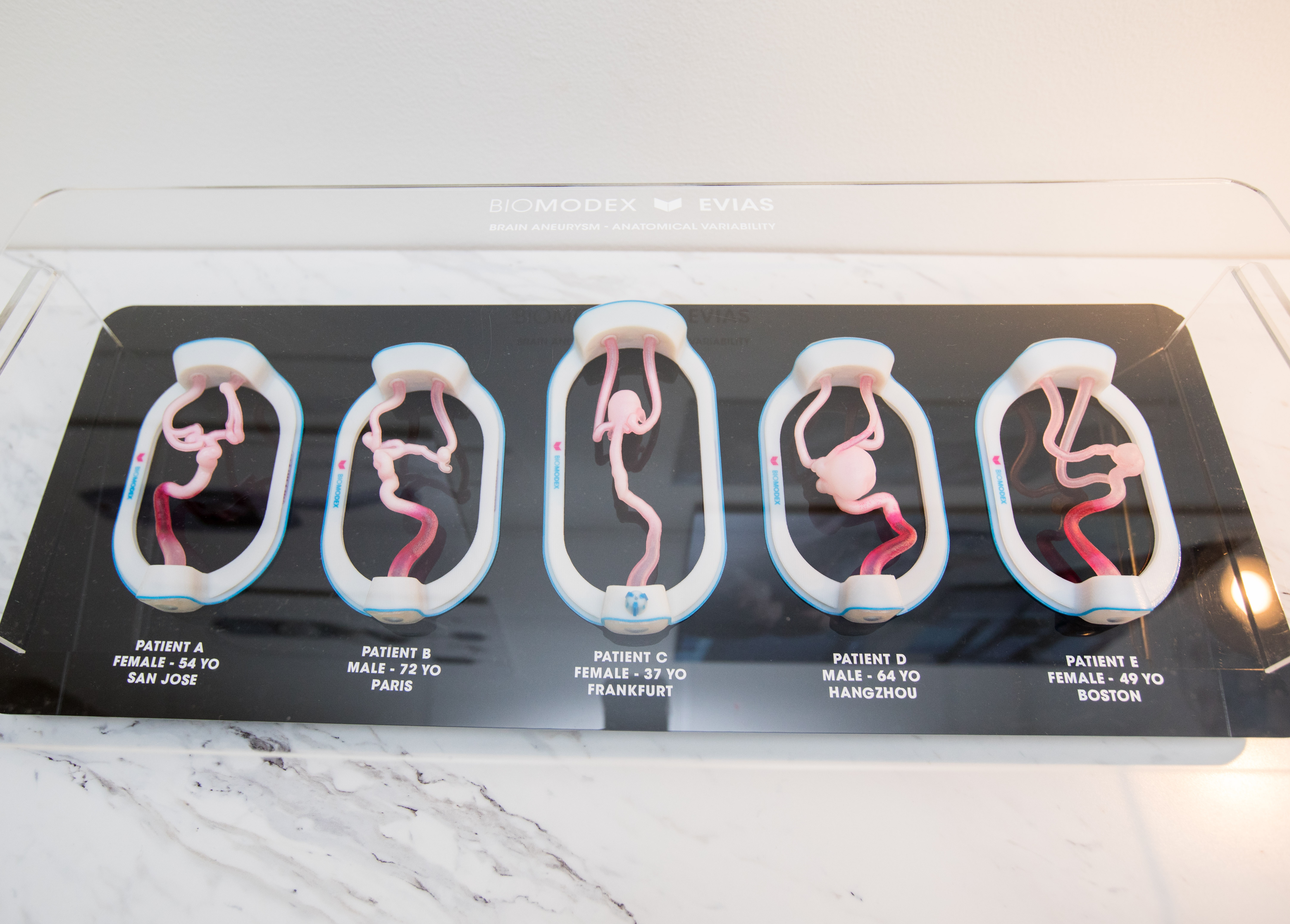
Material updates from Desktop Metal and Rapid Shape
On to material news now, and industrial 3D printer manufacturer Desktop Metal has qualified the use of D2 tool steel on its Production System platform, powered by the firm’s patent-pending Single Pass Jetting (SPJ) technology. D2 tool steel is a versatile high-carbon, high-chromium air-hardening tool steel that exhibits high hardness and compressive strenght after heat treatment. The material is also characterized by its high wear resistance properties, dimensional stability, and corrosion resistance.
With the new material qualification, companies can leverage SPJ technology to produce parts within high-strength and high-temperature applications, such as cold work metal forming tools, dies, and punches.
Desktop Metal has also unveiled a partnership with 3D printing materials developer Uniformity Labs that will see the firms qualify and deliver ultra-low porosity binder jetting powders that exhibit “exceptional” sintered part density and mechanical properties. The partnership will leverage Desktop Metal’s high-speed binder jetting systems and processes with Uniformity Lab’s metal powder processing capabilities to enable businesses to adopt binder getting for the production of end-use metal parts at scale.
The companies will work together to qualify optimized binder jetting powders exclusively for Desktop Metal’s Production System, Shop System, and ExOne print platforms, and will release print profiles for various materials including stainless steels, nickel-based superalloys, and reactive metals such as aluminum.
Elsewhere, Rapid Shape and 4D Biomaterials are evaluating the first prototype medical devices made with the former’s 3D printers and the latter’s resin-based inks, 4Degra. 4D Biomaterial’s 4Degra inks are based on a specialized polycarbonate urethane chemistry and can be printed using DLP technologies to create finely detailed implantable medical devices that support the body’s natural healing processes before degrading and being absorbed harmlessly into the body.
“Working with 4D Biomaterials provides us with the opportunity to expand our offering further into the medical device market,” said Andreas Schultheiss, Rapid Shape’s CEO. “4Degra represents a breakthrough in biocompatible materials and working with the 4D Biomaterials team allows us to be a part of something truly innovative when it comes to patient care.”
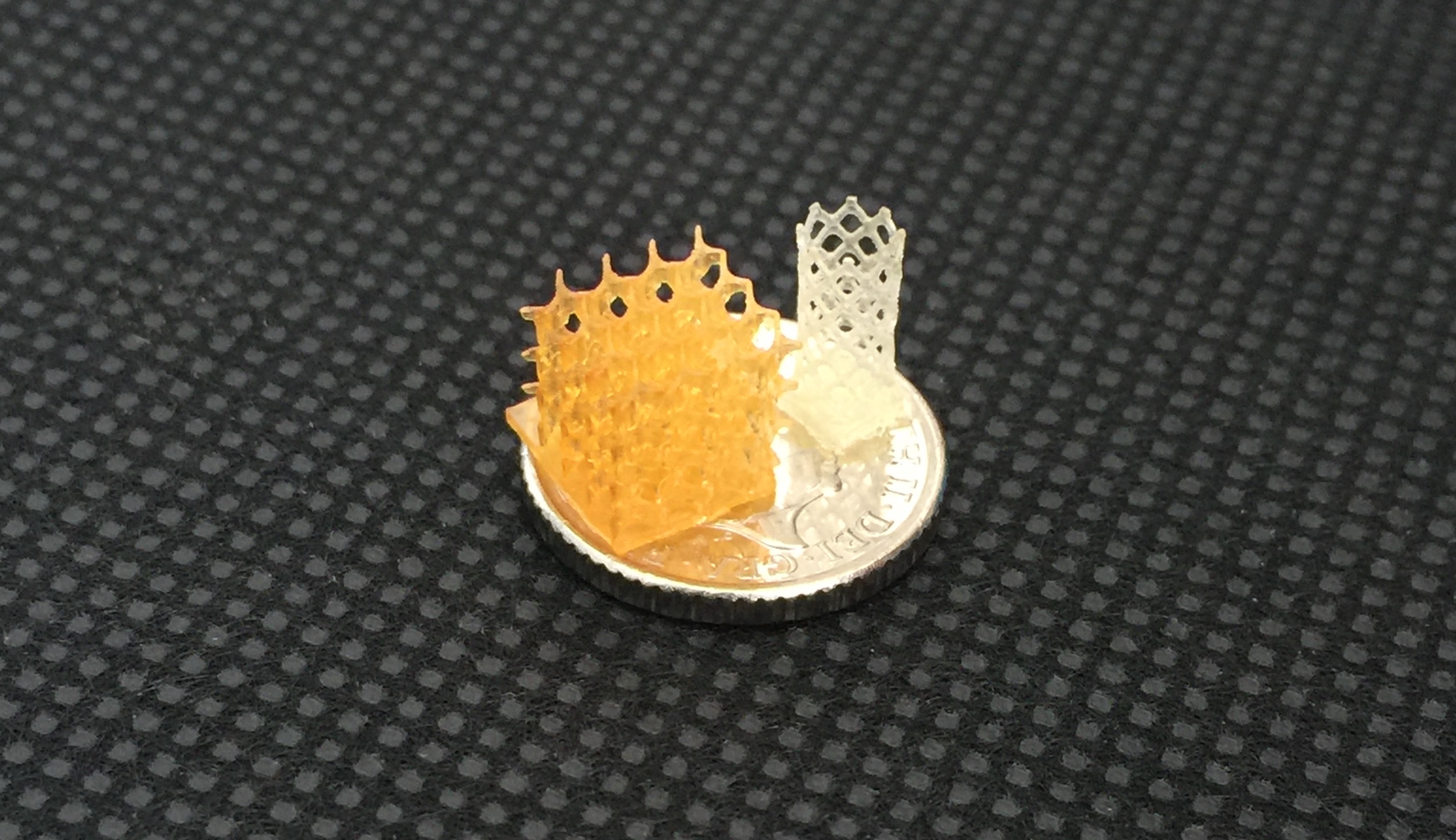
In other materials news, vacuum-bagging and tooling material manufacturer Airtech Advanced Materials Group has expanded its portfolio with a new line of Dahltram resins. Large-scale 3D printer supplier CEAD has qualified the new Airtech Dahltram resins for use on all its AM Flexbot platforms, which combine 3D printing and milling into one automated process for mold making and tooling applications.
Finally, GE Additive company AP&C has signed a new multi-year agreement with Airbus to provide Titanium powders for use in metal 3D printing applications. AP&C is continuing to invest in its plasma atomization technology that allows new materials to be produced for industries such as aerospace.
“Our approach is to be more than just a supplier of metal powders to our customers,” said Alain Dupont, CEO at AP&C. “To scale metal additive manufacturing, acceleration can only be achieved by sharing knowledge best practice to lower risk and increase stability.
“One way we have supported Airbus in recent years, for example, has been to help its in-house additive manufacturing team establish its own methods and processes to qualify Ti-6Al-4V powders.”
Business news from DMC and Desktop Metal
Switching to business-related news now, and the DMC has announced it will be the first service provider in the UK to take delivery of cleaning and surface finishing systems manufacturer Dyemansion’s Powerfuse S industrial vapor polishing system. The Powerfuse S will significantly improve the DMC’s polymer surface finishing capabilities, enabling it to deliver sealed and washable parts with injection molding-like surface quality.
With the latest installation, the DMC has also become the first 3D printing production facility to leverage DyeMansion’s complete reference architecture, comprised of a Stratasys H350 3D printer and DyeMansion’s Powershot C, Powershot S, Powerfuse S, and DM60 systems.
Elsewhere, a former ExOne investor has filed a suit against the company and its acquirer, Desktop Metal, claiming the firms rushed to close their $575 million merger during a court holiday in light of an ongoing whistleblower investigation into the “product compliance practices and procedures” of a facility belonging to Desktop Metal’s subsidiary EnvisionTEC.
The former investor claims that the ExOne shareholder vote to approve the merger was “not fully-informed”, as the investigation was not disclosed until the eve of the Special Meeting when the vote took place, and by when reportedly the “vast majority” of voting shareholders had already submitted their votes by proxy. According to the plaintiff, ExOne’s shareholders have been “directly harmed” through the conversion of their ExOne stock into Desktop Metal stock, as the company’s share price dropped after the “compliance issues” were publicly disclosed and the then-CEO of EnvisionTEC resigned.
Desktop Metal and ExOne have not yet commented on the suit, and 3D Printing Industry will be keeping a close eye on how the case develops.
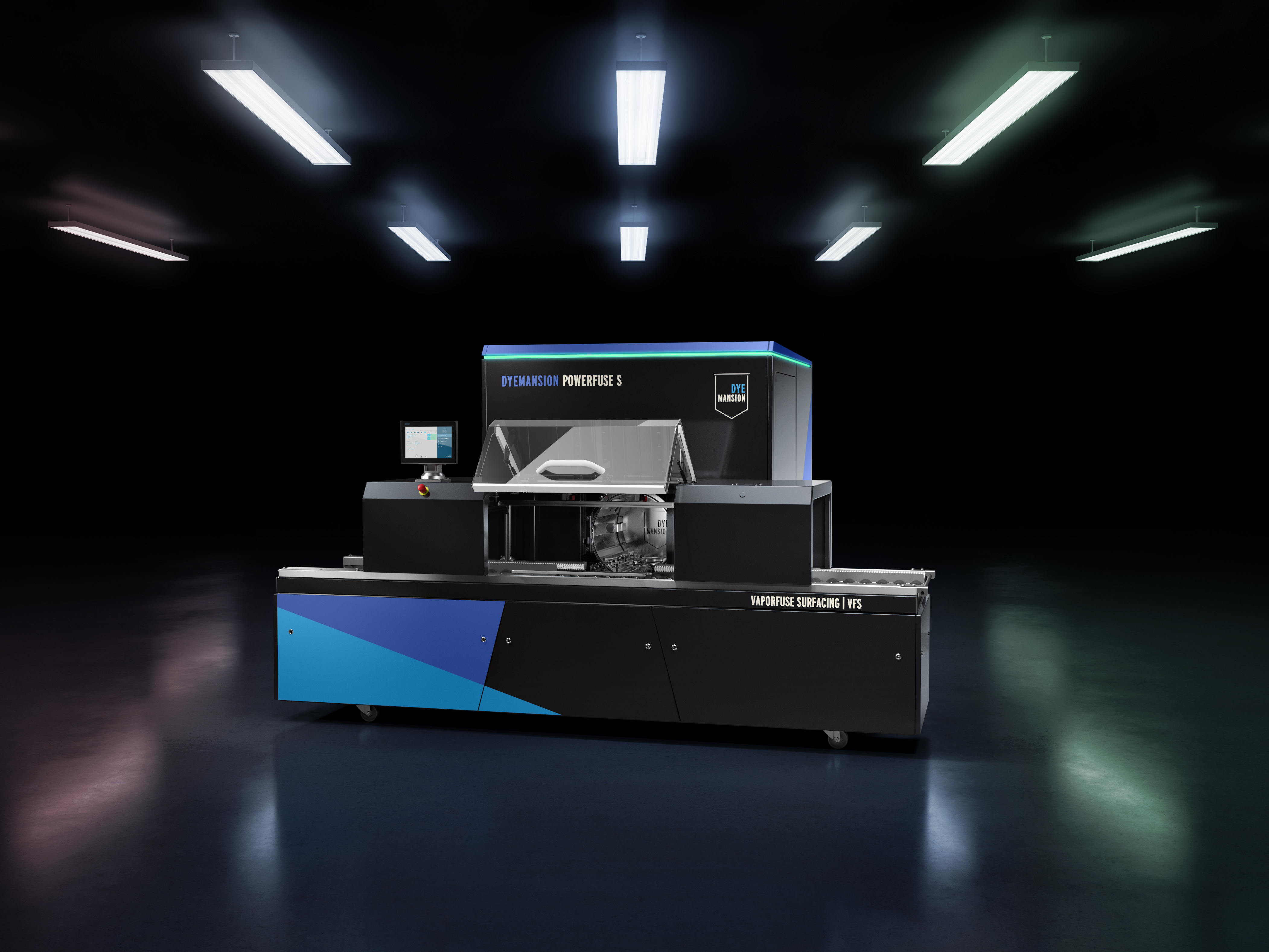
Stratasys hosts dreidel design competition
In other news, industrial 3D printer manufacturer Stratasys has teamed up with the YouDaica Jewish art team to host a dreidel design competition in honor of Hanukkah. Stratasys workers and their families submitted their designs, with the winning three designs to be 3D printed by the company. The winning designs were based on the city of Jerusalem, Earth and ballet.
AR meets laser sintering for future education
Rounding off this week’s news update is a novel proposal for future teaching materials that leverages augmented reality (AR) and 3D printing. The Zurich University of Arts (ZHdK) is developing immersive teaching materials based on the technologies to enable students to gain a deeper understanding about the working methods of archaeology, among other subjects.
As part of the project, SLS 3D printer manufacturer Sintratec has provided a 3D printed replica of an archaeological find to aid students in their learning about a rchain divider relic dating back to 400 BC. According to Jonas Christen, Research Associate of the group Knowledge Visualization at ZHdK, Sintratec’s 3D printing technology proved to be the only method capable of creating a true-to-life replica.
“The 3D printed reconstruction serves as a visual object for the students to experience the dimensions of the find, but can also provide archaeologists with new insights about its possible use,” he said.
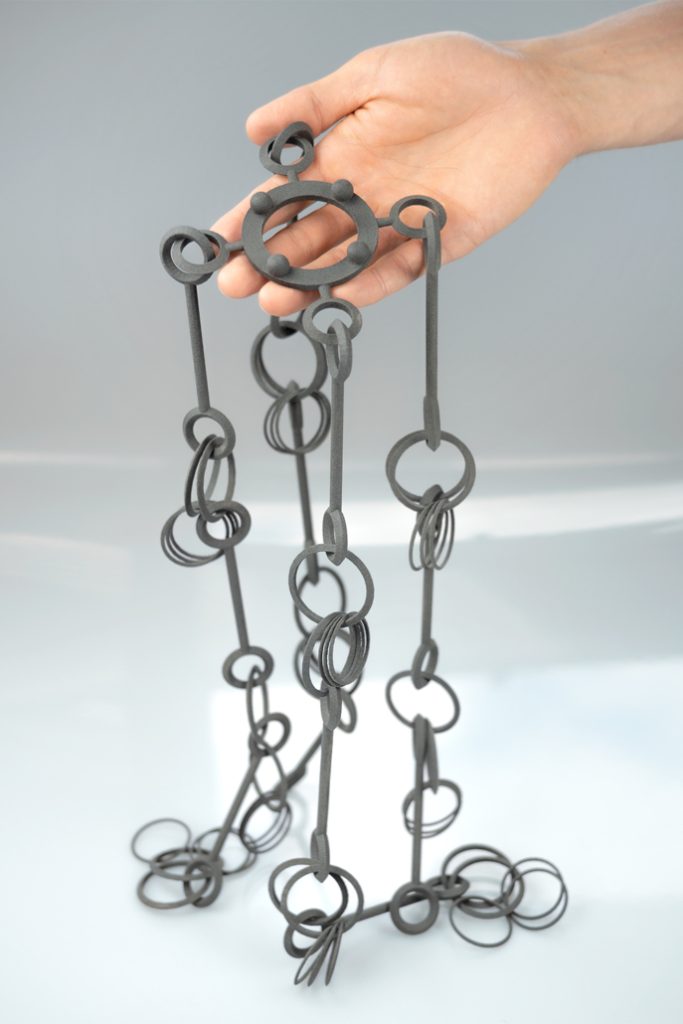
Subscribe to the 3D Printing Industry newsletter for the latest news in additive manufacturing. You can also stay connected by following us on Twitter and liking us on Facebook.
Looking for a career in additive manufacturing? Visit 3D Printing Jobs for a selection of roles in the industry.
Subscribe to our YouTube channel for the latest 3D printing video shorts, reviews and webinar replays.
Featured image shows Sintratec’s 3D printed chain divider replica with the Sliced logo.



